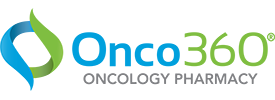February is National Cancer Prevention Month. Awareness, education, screenings, and research are helping many individuals prevent cancer. New innovations are detecting cancer earlier, and ultimately leading to a more accurate diagnosis and treatment, which means that we can help save lives now.
Awareness and Cancer Prevention Resources:
Diagnosis and Treatment Resources
If you or a loved one have been diagnosed with cancer, here are some helpful tips and information.
Get the Facts
Figure out how much you want to know about your diagnosis. Some people want all the facts and others just want to keep it basic and trust their care team to put together a treatment plan. Sit down and write out all the questions you want to be answered before your first oncology appointment. Consider bringing a family member or close friend with you to help you remember everything that is said during these appointments. Sample questions are:
- What kind of cancer do I have?
- What other tests or procedures do I need?
- What can I expect during treatment?
- What are possible side effects?
Get Organized
Create a way to keep appointments, physician phone numbers, information collected along the way, and a running list of questions. This could be done in a binder, notebook, or app on your phone.
Expect Change
Ask your doctor about possible physical changes and changes to daily activities that might be anticipated, and what you can do to prepare for these changes.
Get Support
Expressing honest emotions is important during your cancer treatment. This applies to family members and friends, but also to your doctors. The more open and honest you can be with people you care about, the more strength you can gain from each other. Seeking out a local cancer support group is also an option. Hearing similar stories and information, can be extremely helpful and also keep you from feeling alone in your journey.
Manage Financial Stress
There can be many unexpected financial burdens associated with a cancer diagnosis. Make sure to add those questions to your initial list so you can better prepare. If you are concerned about the cost of your prescriptions, make sure to talk to our OncoAdvocate® team.
Practice Self-Care
Taking care of yourself physically is important before, during, and after your cancer treatment – but that also means to include your mental and spiritual self. You owe it to yourself to be your #1 caregiver.
• Exercise
• Practice relaxation techniques
• Journal
• Eat nourishing foods
• Find a source of spiritual support
• Stay positive
• Learn to rely on others
• Try to keep life “as normal as possible”
• Prioritize sleep
• Consider speaking with a mental health professional if needed
• Spend time with loved ones
If you would like to design your own personalized cancer prevention checklist, we recommend Cancer Advocacy as a good place to get started. You can design a simple, straightforward list that you and your caregivers can use as a cancer prevention guide for information that is critical to your care.
